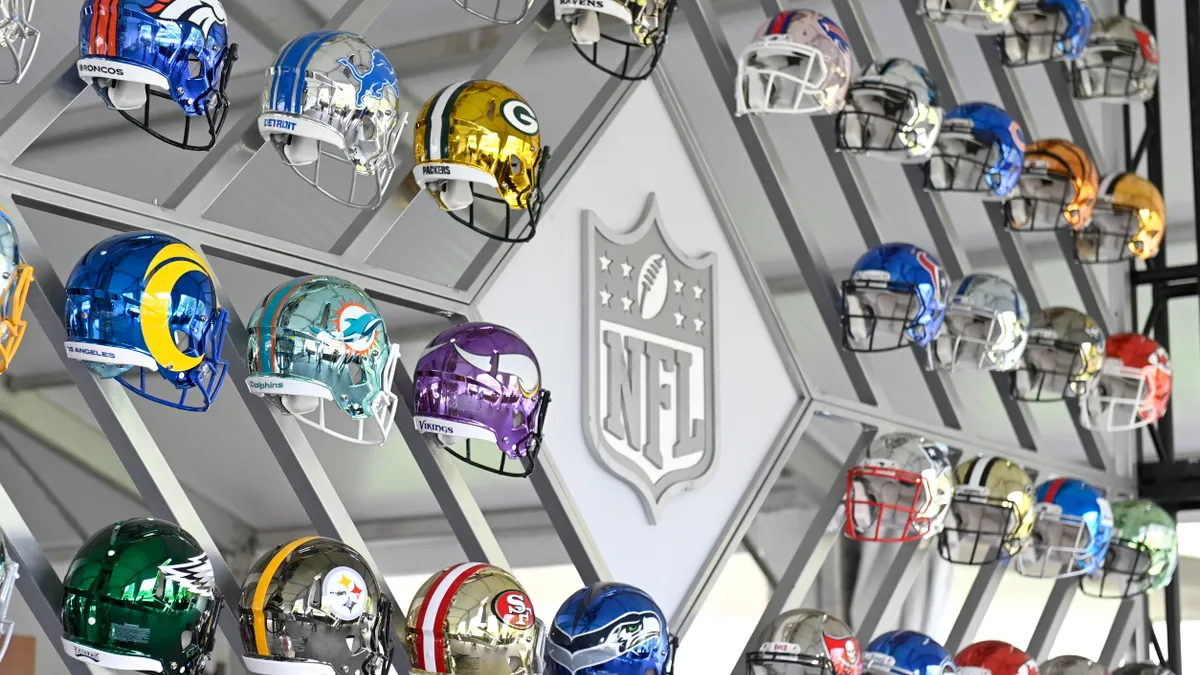Dive Brief:
- The National Football League and its member club, the Denver Broncos, discriminated against linebacker Randy Gregory when they refused to allow him to take physician-prescribed dronabinol, a synthetic form of THC, for disabilities including social anxiety disorder, PTSD and chronic pain symptoms, Gregory alleged June 5.
- In a lawsuit filed in Colorado’s Arapahoe County District Court, Gregory claimed he was prescribed dronabinol and requested an accommodation in the form of a therapeutic use exemption to take it during nonwork hours. The league allegedly denied the request, stating that dronabinol is a federally controlled substance.
- Gregory continued to take the drug, claiming to have received more than $532,000 in league fines based on positive THC tests. He alleged that the NFL’s failure to engage in the interactive process and provide a reasonable accommodation constituted disability discrimination in violation of Colorado’s Anti-Discrimination Act. The NFL and Denver Broncos did not immediately respond to HR Dive requests for comment.
Dive Insight:
The Colorado Anti-Discrimination Act, or CADA, contains disability accommodation provisions that are “substantially equivalent” to federal laws, including the Americans with Disabilities Act, according to a document published by the state’s Civil Rights Commission. As such, the law requires employers to make reasonable accommodations to qualified applicants or employees with disabilities unless they can demonstrate undue hardship.
In his suit, Gregory claimed that he provided correspondence to the NFL that disclosed his diagnoses and explained why dronabinol was prescribed. When the league and Broncos requested additional information days later, he said he provided a letter from his doctor.
Both the NFL and team allegedly denied the request, “indicating that off-label use of Dronabinol is not an acceptable medical explanation for a positive THC test.” Gregory also alleged that both organizations were “unwilling to consider reasonable modifications to their policies” to accommodate him.
The NFL previously faced a disability discrimination suit from former New York Jets safety Rontez Miles. Miles had a condition, alopecia areata, which caused sensitivity to light. He used an eye shield while playing but alleged that he was told by a league official to remove the shield in 2017; Miles later suffered an injury while playing without the shield, claiming that he was unable to take appropriate defensive measures due to bright sunlight.
A federal judge dismissed Miles’ lawsuit against the NFL in 2022, finding that his state and federal ADA claims were “inextricably intertwined” with the league’s collective bargaining agreement and official playing rules, and therefore preempted by the Labor Relations Management Act.
Federal courts have previously stated that employees are not necessarily entitled to their preferred accommodations under the ADA. Last year, the 4th Circuit found in favor of UPS in the case of an employee who alleged the company discriminated against him when it refused to grant his requested accommodation and instead placed him on unpaid leave until he could return to work.













